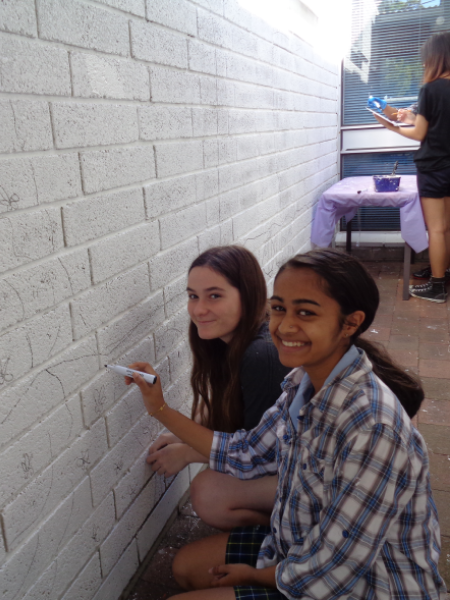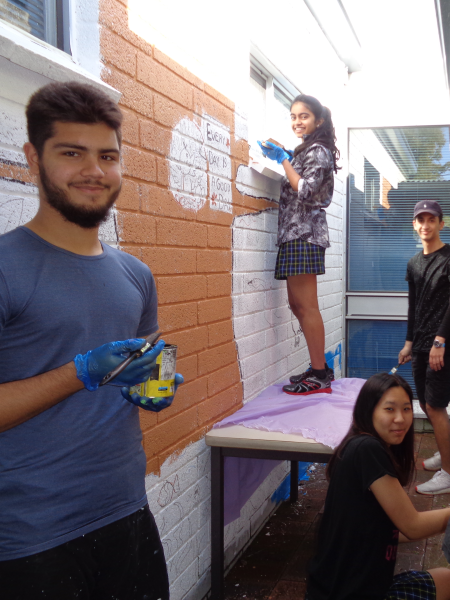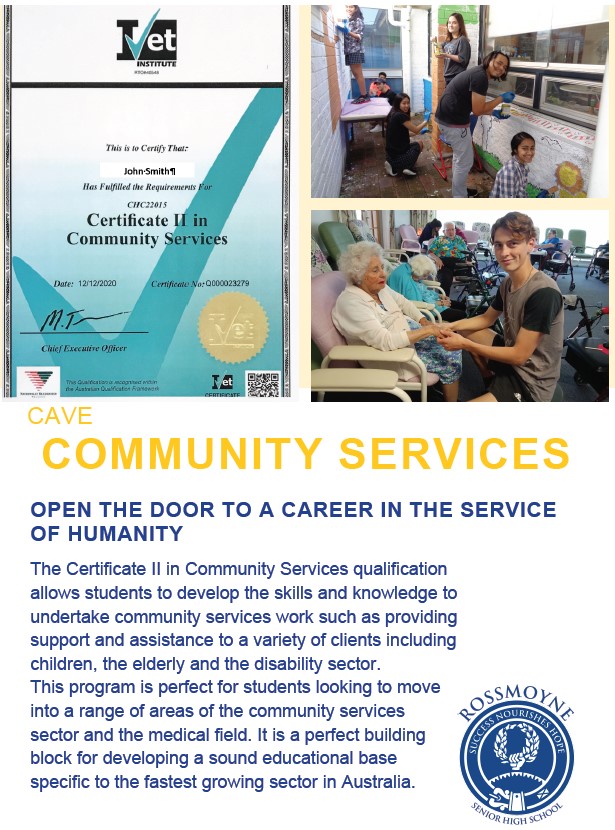






Certificate II in Community Services (CHC22015)
This qualification provides students experience and knowledge as workers who provide first point of contact and assist individuals in meeting their immediate needs. This may include workers in the medical profession (doctors and nurses) and those in the education field (Teachers and Education Assistants). Students also explore how to work under direct, regular supervision within clearly defined guidelines.
Has the advantage of being completed in ONE year, freeing up time in Year 12.
Carries four ‘C’ grade equivalents towards WACE.
Students will have the opportunity to participate in community service programs throughout the course. These may include: fundraising activities for a charity, creating interactive lessons for primary school students, assisting at aged care facilities and renewal projects for organisations. These activities are designed that students gain valuable experience in communication, building resilience, connecting with the local community and ensuring students are future ready.
Any units of competency attained during the program will be recognised on the student’s WACE. Students will develop relevant technical, vocational and interpersonal competencies suitable to employment and further training in business, as well as skills, knowledge and experiences that are transferable to other industry areas.
Assessments:
This has competency based, ongoing assessment that is coordinated with the training package. Students must complete all tasks to achieve full competency.
Competency Based Training (CBT) is training that is designed to allow a student to demonstrate their ability to do something. The key to CBT is that you either can or cannot demonstrate the skill that you are learning about. Students simply have to demonstrate they can do a task, activity or exercise well enough to be assessed as “Competent”.
Assessment result must be 100% to be deemed competent.
- Practical 50%. (Scenarios, Community Services Work, Observations)
- Class work 50%. (Completion of theory tasks underpinning each unit.)
